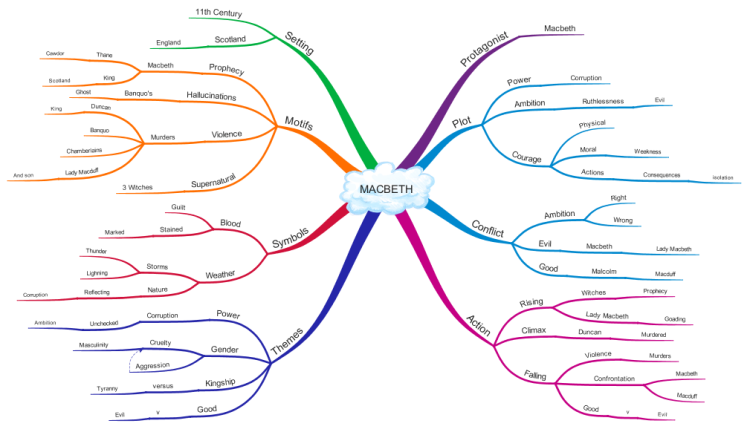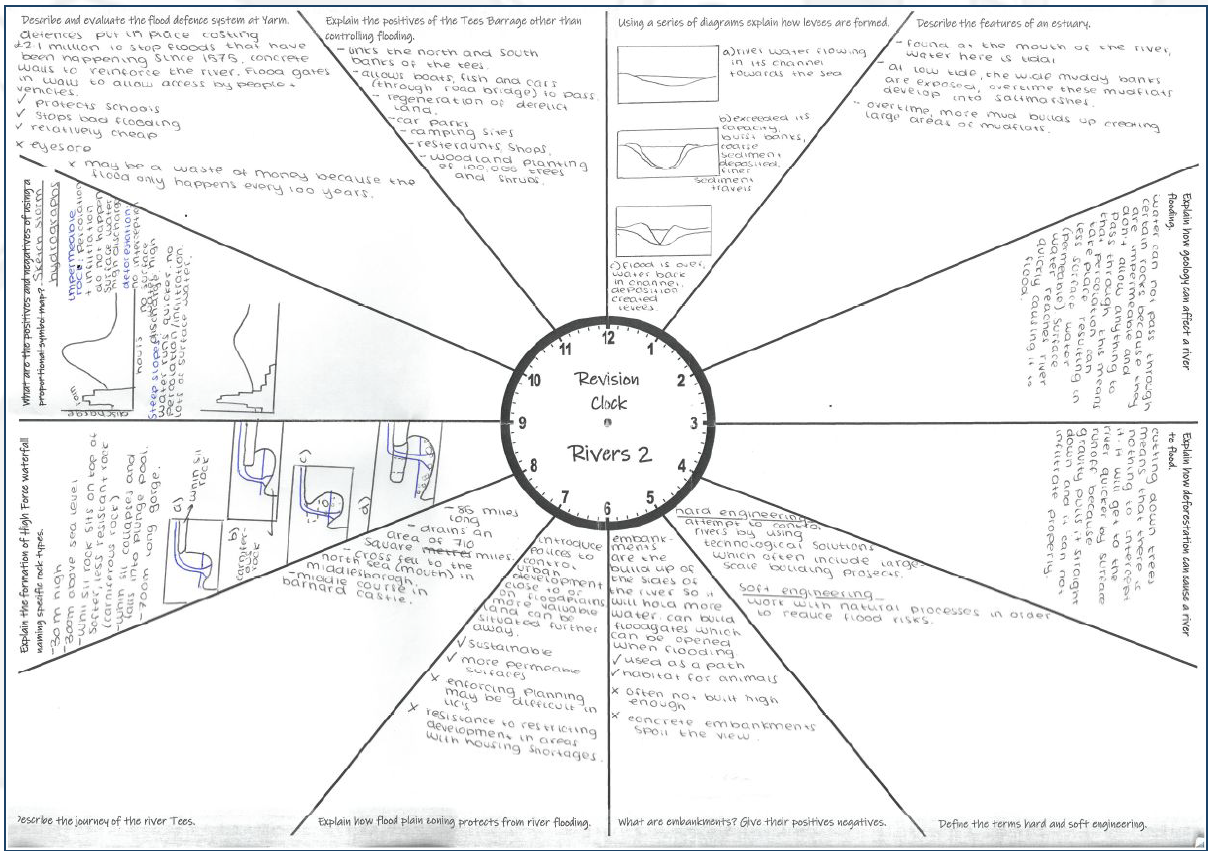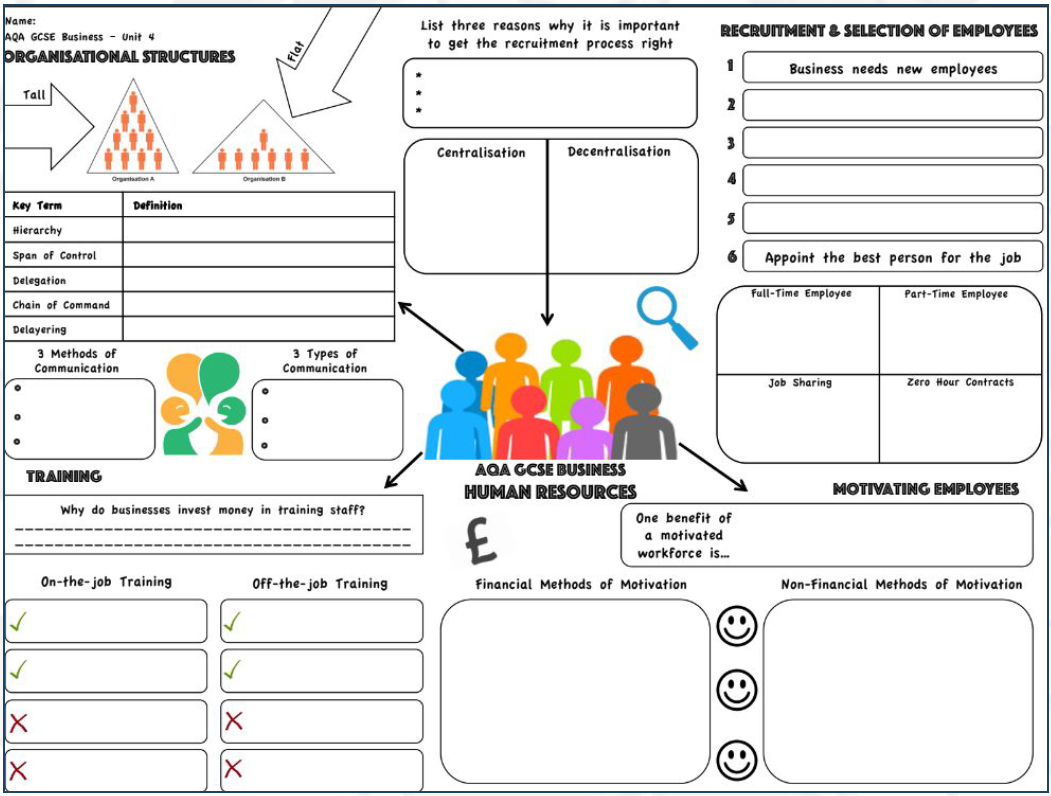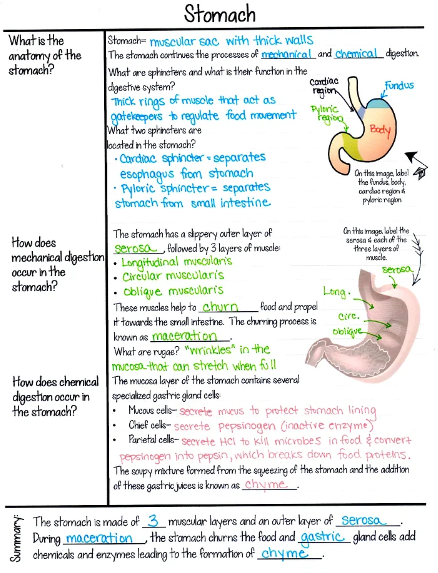Revision Techniques
Mind Maps
These are the ideal revision technique when trying to summarise large chunks of information. The central bubble holds the key topic and everything around it should be categorised into subtopics with more strands following on from there.

A mind map can be made using https://coggle.it/ , or they can be made on paper. Here is a great example of how to put one together. https://www.youtube.com/watch?v=e67gvI0Xu3g
Flash Cards
Flash cards are great for quizzing, testing or learning key facts. Students should make a flash card about each topic, the flash card should only hold about 20% of the total information required and should include keywords and phrases only. Alternatively, flash cards can be created for Q&A with the question on one side and the answer on the other. The Leitner system is a good strategy to help when revising using flash cards.
- Box 1: Everyday
- Box 2: Twice a week
- Box 3: Once a week
Students can test themselves on the flashcards in Box 1 pile. If the answer is correct on
the flashcard, move it to the Box 2 pile. If it is incorrect, it stays in Box 1. Twice a week,
students test themselves on the flashcards in Box 2. If the answer is correct on the
flashcard, move it to the Box 3 pile. If it is incorrect, it stays in Box 2. The aim is to get all of
the flashcards to Box 3. See the video below for more information.
https://www.youtube.com/watch?v=C20EvKtdJwQ
Revision Clocks
Revision Clocks The clock helps students break down a topic into 12 sub-categories. Make notes in each chunk of the clock, revise each slot for 5 minutes, then move on. All of year 11 have been provided with a revision clock template in the revision Google Classroom that they can print and use to create their own clocks. Below is an example of a revision clock for Geography.

Knowledge Organisers
These help to summarise key information for an exam unit or topic. Students need to test themselves on the content of the knowledge organiser. They can be used to help complete a past paper.

Cornell Notes
Cornell notes help to select and chunk information. In section 1 students make the key notes, in section 2 add key words and then a summary should be added to section 3. Year 11 have all been provided with a Cornell notes example on Google Classroom that they can edit and use for their own revision.

Quizzing
This technique helps to identify knowledge and how much has been remembered as well as any gaps in knowledge. Daily quizzes help with long term memory. Questions answered incorrectly will need regular reviewing. You can use the abundance of quizzing websites to help with this. Below are a few examples. Click on each image for more information.


